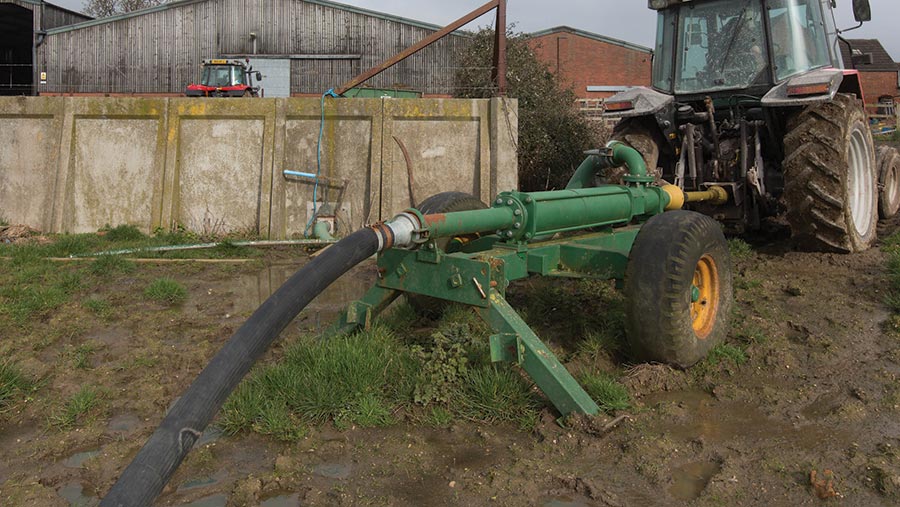Wet weather prompts slurry storage warning
 © Tim Scrivener
© Tim Scrivener Farmers worried about slurry storage capacity are being urged to speak to the Environment Agency (EA) to reduce pollution risk.
The advice comes after one of the wettest autumns on record means slurry storage on many farms has reached full capacity.
With the nitrate vulnerable zones (NVZ) closed period now in effect (see Defra) and fields saturated by rainfall, it means some farms can’t empty lagoons by spreading slurry.
See also: 5 ways government policy can encourage soil-first farming
Briony Burge, farm adviser at Creedy Associates, said: “It is far better to talk to your local EA officer before problems start.
“A plan can then be put in place with the EA to minimise the risk of pollution this winter, if necessary”.
She added that farms in NVZs foreseeing spreading issues in the spring – when the closed period ends – should engage with the EA now.
Below, Ms Burge and David Ball, AHDB environment and buildings senior manager, give advice on what can be done.
- Carrying out and recording all reasonable steps taken to reduce pollution risk before spreading manure can help if a pollution incident does occur.
- Measures that should be taken before spreading manure include: checking the weather forecast is favourable on the day of spreading and subsequent days; spreading on low-risk land located away from surface watercourses; spreading at a low application rate (not more than 30cu m/ha); and leaving at least three weeks between applications.
- Divert rainwater away from the yard where possible to reduce volume.
- Avoid open air livestock feeding and loafing yards if possible. Temporary measures could see cattle taken off the yard and the yard cleaned and run-off diverted away.
- Reduce the amount of clean water entering manure facilities on the farm by repairing and cleaning guttering
- Use sand bags to divert field run-off away from farm buildings.
- Slurry is classed as a source of highly available nitrogen and is subject to closed periods in NVZs. Dirty water kept separate from slurry (from “lightly fouled” collecting yards and handling yards) is not subject to a closed period and can be spread on land providing the act of spreading does not cause pollution. The Defra Farming Rules for Water apply to all English farmers, with additional rules affecting when and where organic manures can be spread on farms in NVZs.
